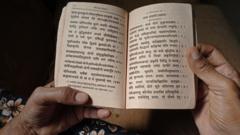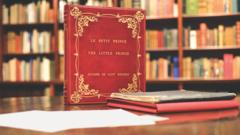Any new revelation about William Shakespeare is bound to intrigue academics, and a recently rediscovered document is stirring the waters. This letter, previously overlooked for countless years, could alter the long-held belief that the playwright was a negligent husband to his wife, Anne Hathaway.
Marriage came early for Shakespeare, who wed Anne at age 18 in 1582. Anne, the daughter of a family friend, was already in her mid-20s and pregnant at the time of their wedding. For centuries, the prevailing narrative suggested Shakespeare abandoned Anne and their children to pursue his career in London, purportedly to escape “domestic feuds,” as one prominent 19th-century observer noted. This portrayal often depicted Anne as a “distant encumbrance,” which aligned with the notion that Shakespeare’s brilliance could not be confined to a married existence, according to Matthew Steggle, a literature professor at the University of Bristol.
However, Steggle's upcoming research set to publish in a reputable journal challenges this narrative. The crux of the revelation lies in a fragment of a letter directed to “Mrs. Shakspaire,” found within a book dating back to 1608. Although an amateur historian identified this letter in 1978, it received scant attention and was subsequently overshadowed, even as the book was unbound in 2016 to reveal what seems to be a correspondence from Shakespeare’s wife to him. Steggle, who originally sought to pen a Shakespeare biography, expressed his surprise at the limited recognition of this significant find.
Advancements in technology have enabled Steggle to investigate individuals referenced in the historical correspondence, allowing him to substantiate the claim that the letter indeed pertains to the playwright’s relationship with his wife. This exciting development points to the possibility that Shakespeare may not have been as emotionally distant from his family as traditional narratives suggest, opening new avenues for understanding the personal life of one of history's greatest literary figures.













